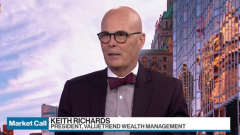Nov 29, 2023
Investors Poured a Record Amount of Money Into Junk-Bond ETFs Last Month
, Bloomberg News

(Bloomberg) -- Investors are embracing high-yield funds like never before, broadening their risk appetite across markets amid swelling optimism for a soft landing.
In November, they’ve dumped $11.9 billion into exchange-traded funds tracking junk bonds, the biggest monthly inflow for the sector on record, according to data compiled by Bloomberg Intelligence’s James Seyffart. Yields on speculative-grade debt have fallen to a more than 10-week low and month-to-date returns are at their highest levels since July 2022. And the extra yield investors demand to hold junk bonds, on an option-adjusted basis, has slid by 12% this month.
The surge in demand has led to a flurry of debt sales. Junk-rated borrowers have issued more than $16.5 billion since the beginning of the month. That outstrips the totals for all but four other months this year despite the pre-Thanksgiving slowdown.
“If you look generically at where high-yield is trading, from an all-in yield perspective, it’s probably about as attractive as it’s been in over a decade,” said Scott Kimball, managing director at Loop Capital Asset Management.
The bulk of the funds went to BlackRock’s iShares iBoxx High Yield Corporate Bond ETF, which had a record $5.2 billion of inflows this month. Meanwhile, short interest in the ETF is approaching five-month lows, and its shares are poised for their best month since 2022.
Seyffart attributed the “FOMO” in high-yield bonds to the Fed’s rate-hike pause and to the market pricing in potential cuts early next year. (BI strategists do not foresee rate cuts soon, he clarified.) “There’s a strange dichotomy between people calling for a recession and flows into relative risk-on assets,” he said.
Researchers from Barclays and S&P Global expect speculative-grade defaults to rise next year as elevated borrowing costs and slowed growth collide with a steep maturity wall. Strategists at JPMorgan and Morgan Stanley are recommending investors skew their portfolio up in quality as a result.
But default risks are always present in high yield, and most forecasts aren’t calling for a deep recession.
“You’re not going to be able to buy into a sector like high yield and not assume some risk. The question is, are the risks manageable?” Kimball said. Strong commodity prices and low chances for a prolonged economic skid mean they are right now, he said.
©2023 Bloomberg L.P.






